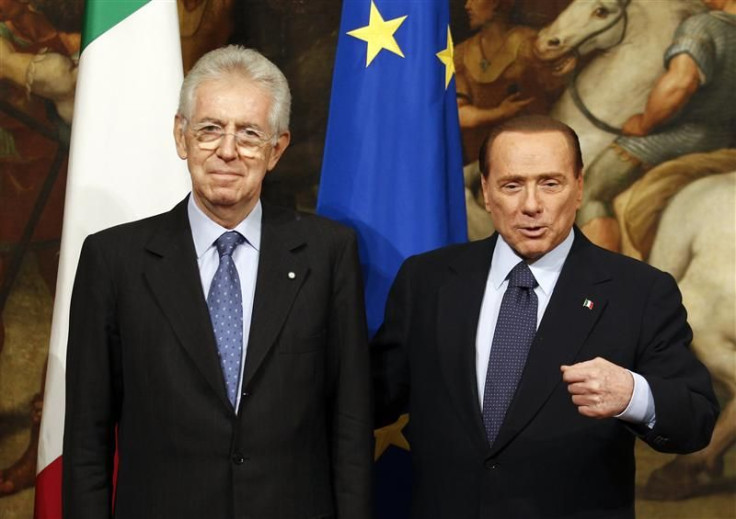Italy’s Monti Passes Second Confidence Vote

Italy’s new Prime Minister Mario Monti has sailed through his second confidence vote, this time in the lower house of parliament, following a ringing endorsement by the upper house on Thursday.
MPs voted 556 to 61 to support the new ‘technocratic’ government’s program of budget reform, as well as Monti’s request that he be allowed to hold the office until elections are called in 2013.
Former Prime Minister Silvio Berlusconi also gave Monti tacit support -- while earlier threatening to bring down the new government if they took a path not to his liking. However, on Friday, Berlusconi eased back his rhetoric and told reporters: I think this government will operate in a way that serves the country for the whole remaining period.
Monti, who has been entrusted to steer Italy out of a dangerous economic crisis, has already presented his plan to resolve the country’s deep financial problems.
If we fail, if we don't carry out the necessary reforms, we will also be subjected to much harsher conditions, Monti warned prior to the vote.
Overall, he promised to balance the budget by 2013 and slash the country’s massive debt--now totaling 1.9 trillion euros, or 120 percent of GDP, the second highest level in the Eurozone, behind only Greece.
Monti said he will meet German Chancellor Angela Merkel and French President Nicolas Sarkozy next week.
The former EU commissioner, who succeeded Berlusconi last week, has formed a cabinet consisting primarily of business executives, lawyers, bankers and academics, rather than career politicians.
Key members of the new cabinet include Corrado Passera, chief executive of Italy’s biggest bank, Intesa Sanpaolo group, who's now the chief of the new Ministry of Development, Infrastructure and Transport; Antonio Catricala, formerly the head of the anti-trust authority, who's now the cabinet under-secretary and Elsa Fornero, an economics professor, who's now the labor minister.
Alan Johnston, a BBC correspondent in Rome, commented: “So far, generally, Mr. Monti has been well received. His measured, thoughtful, tactful approach comes in stark contrast to the style of his predecessor, Silvio Berlusconi. And to many Italians, the change of tone comes as a huge relief. Monti has made some clever opening moves. In setting out his austerity program before parliament he's talked only in the broadest terms. There have been no details of any step that might have provoked major opposition right from the outset.”
Johnston added: “Far from frightening people, much of what he said would have been widely welcomed. He said his reforms would aim to make Italy fairer. He said there would be more jobs for women and the young, and that tax evaders would be hunted down. Certainly some people are uneasy that their country is now led by a completely unelected administration. One student at yesterday's demonstration in Rome spoke for many around him when he demanded the right to be able to vote for his government. But at the same time, there is very little faith in the country's professional political class. And for the moment at least the polls suggest that the great majority of Italians are ready to give Mr. Monti and his team of experts a chance.
© Copyright IBTimes 2024. All rights reserved.





















